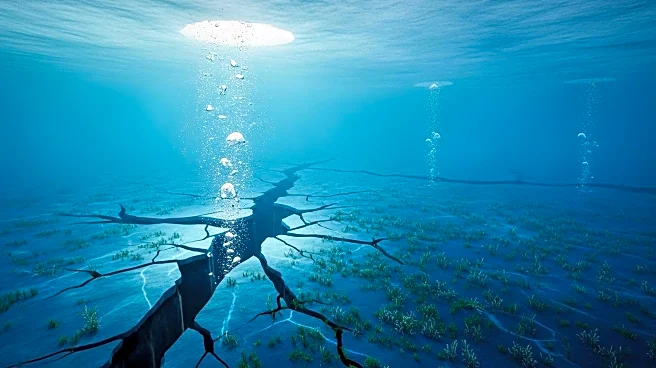What's Happening?
Researchers have identified significant methane emissions leaking from cracks in the Antarctic seabed, particularly in the Ross Sea region. Methane, a potent greenhouse gas, is escaping at high rates as the area experiences unprecedented warming. The study, published in Nature Communications, highlights the widespread nature of these emissions, which are linked to seepage of hydrocarbon-rich fluids. Methane is responsible for a third of anthropogenic global warming and is 25 times more potent than carbon dioxide. The findings underscore the need for further research to understand the dynamics of fluid and gas release in the Antarctic.
Why It's Important?
The discovery of methane leaks in Antarctica is crucial for understanding global climate change dynamics. Methane's potency as a greenhouse gas means its release could significantly accelerate warming trends. The findings may prompt increased scientific focus on the Antarctic region, which is already experiencing ice mass reduction. Understanding these emissions is vital for developing strategies to mitigate climate impacts and protect vulnerable ecosystems. The research could influence international climate policy, emphasizing the need for innovative solutions to reduce methane emissions.
What's Next?
Further studies are needed to fully understand the role of methane emissions in Antarctica and their impact on global climate change. Researchers may explore the potential for mitigating these emissions through technological advancements or policy changes. International collaboration could be essential in addressing the environmental challenges posed by methane leaks, as the Antarctic region plays a critical role in global climate systems.
Beyond the Headlines
The study highlights the interconnectedness of climate systems, with changes in one region potentially affecting global patterns. The focus on methane emissions in Antarctica may lead to broader discussions on the importance of addressing short-lived climate pollutants. This research could drive innovation in environmental monitoring and mitigation technologies, contributing to global efforts to combat climate change.











